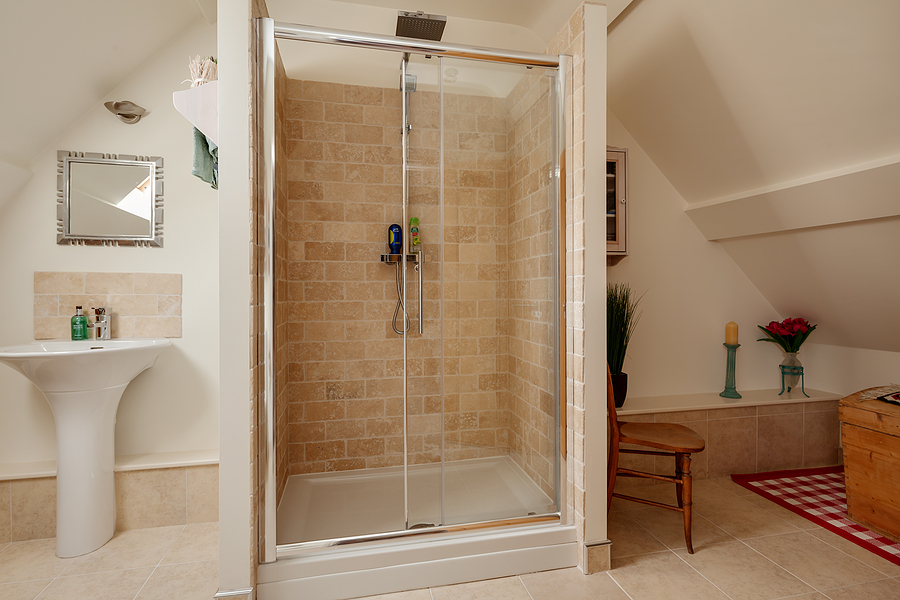
What is the Most Durable Material for Shower Walls?
When it comes to remodeling your shower, choosing the right material for your shower walls is crucial. You want a material that is not only aesthetically pleasing but also durable and able to withstand the test of time. In this blog, we’ll delve deeper into the most durable materials for shower walls, discussing their advantages and disadvantages, and providing you with the average costs for each option.
Ceramic and Porcelain Tile
Ceramic and porcelain tiles are popular choices for shower walls due to their versatility and durability. Porcelain tiles are denser and less porous than ceramic tiles, making them slightly more resistant to water and stains.
Pros
- Wide variety of colors, styles, and sizes
- Easy to clean and maintain
- Water-resistant
- Budget-friendly
Average Cost
The average cost for ceramic and porcelain tile ranges from $2 to $10 per square foot, not including installation costs, which can range from $5 to $15 per square foot.
Natural Stone
Natural stone options, such as marble, granite, or slate, offer a unique and luxurious look for shower walls. Each type of stone has its own characteristics, making every shower one-of-a-kind.
Pros
- Unique, luxurious look
- Durable and long-lasting
- Adds value to your home
Average Cost
The average cost for natural stone ranges from $10 to $50 per square foot, not including installation costs, which can range from $15 to $30 per square foot.

Acrylic and Fiberglass
Acrylic and fiberglass shower wall panels are lightweight, easy to install, and provide a seamless look. These non-porous materials are resistant to mildew and mold, making them a low-maintenance option.
Pros
- Lightweight and easy to install
- Non-porous and easy to clean
- Resistant to mildew and mold
- Budget-friendly option
Average Cost
The average cost for acrylic and fiberglass shower wall panels ranges from $3 to $10 per square foot, not including installation costs, which can range from $5 to $10 per square foot.
Solid Surface
Solid surface shower walls, such as Corian or Swanstone, offer a durable and long-lasting option with a seamless, grout-free appearance. These materials can be customized in various shapes and sizes to suit your design preferences.
Pros
- Durable and long-lasting
- Seamless, grout-free appearance
- Customizable shapes and sizes
- Easy to clean and maintain
Average Cost
The average cost for solid surface shower walls ranges from $10 to $40 per square foot, not including installation costs, which can range from $15 to $25 per square foot.
Cultured Marble
Cultured marble mimics the look of natural marble at a lower cost. It is a composite material made of crushed natural marble and resin, which creates a durable and water-resistant surface for your shower walls.
Pros
- Mimics the look of natural marble at a lower cost
- Durable and water-resistant
- Easy to clean with no grout lines
Average Cost
The average cost for cultured marble shower walls ranges from $15 to $40 per square foot, not including installation costs, which can range from $10 to $20 per square foot.
When it comes to choosing the most durable material for your shower walls, there are several options to consider. Each material has its own unique set of advantages and disadvantages, as well as varying costs. Ultimately, the best choice for your shower walls will depend on your personal preferences, budget, and desired look for your bathroom. Ceramic and porcelain tiles offer versatility and affordability, while natural stone options provide a luxurious, high-end look. Acrylic and fiberglass panels are lightweight and low-maintenance, while solid surface and cultured marble materials offer seamless, grout-free appearances.

By exploring the options and their associated costs, you can make an informed decision and invest in a shower wall material that will last for years to come. Don’t forget to consider factors such as maintenance, installation, and your local climate when making your final choice. The right material for your shower walls will not only enhance the beauty of your bathroom but also provide a durable, long-lasting solution for your home.
Benefits of Remodeling Shower Walls
There are several benefits to remodeling your shower walls, making it a worthwhile investment for homeowners. Here are some key advantages to consider:
Improved Aesthetics
Updating your shower walls can significantly enhance the look of your bathroom. With a wide range of materials, colors, and designs to choose from, you can create a customized appearance that reflects your personal style and complements the rest of your bathroom décor.
Increased Home Value
A well-designed and up-to-date bathroom can increase your home’s value and make it more appealing to potential buyers. A shower wall remodel is a relatively cost-effective way to add value to your property and improve its marketability.
Enhanced Durability and Functionality
Choosing a durable material for your shower walls not only ensures long-lasting performance but also improves the overall functionality of your shower. High-quality materials are more resistant to water damage, mold, and mildew, leading to a cleaner and healthier environment for you and your family.
Low Maintenance
Some materials, such as solid surfaces and acrylic, require less maintenance than others, like natural stone and ceramic tiles. By selecting a low-maintenance option for your shower walls, you can save time and effort on cleaning and upkeep.
Customization Options
Remodeling your shower walls allows you to customize your shower’s size, shape, and layout to suit your specific needs and preferences. You can also incorporate additional features like built-in shelves, niches, or benches for added functionality and convenience.

A Realistic Budget for Shower Wall Remodel
When planning your shower wall remodel, it’s essential to set a realistic budget that factors in the cost of materials, labor, and any additional expenses. Here are some general guidelines to help you estimate your budget:
Material Costs
As discussed earlier in the blog, the cost of materials can vary widely depending on the type of material you choose for your shower walls. On the lower end, you can expect to pay around $2 to $10 per square foot for ceramic and porcelain tiles or acrylic and fiberglass panels. On the higher end, natural stone and solid surface materials can cost between $10 and $50 per square foot.
Installation Costs
Professional installation is crucial for ensuring the longevity and performance of your shower walls. Installation costs can range from $5 to $30 per square foot, depending on the complexity of the project and the material you choose. Keep in mind that some materials, such as natural stone, may require additional structural support, which can increase installation costs.
Additional Expenses
When setting your budget, don’t forget to consider any additional expenses that may arise during the remodeling process. These may include the cost of a new shower base, plumbing modifications, shower fixtures, or waterproofing materials. You should also allocate funds for any unexpected costs, such as repairs or adjustments that may be necessary during the installation process.
Considering these factors, a realistic budget for a shower wall remodel can range from $1,000 to $5,000 or more, depending on the size of your shower, the materials you choose, and the complexity of the project. To make the most of your investment, be sure to research different materials, compare quotes from multiple contractors, and plan for any potential contingencies. With careful planning and a clear understanding of your budget, you can create a stunning shower that meets your needs and enhances the overall appeal of your bathroom.
